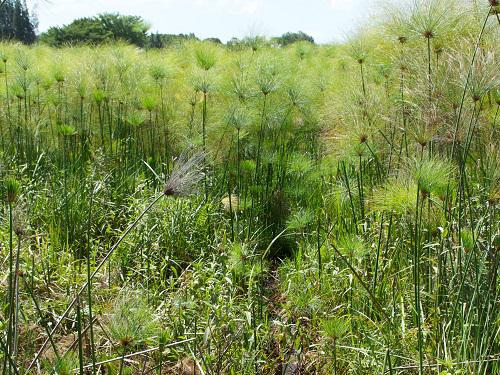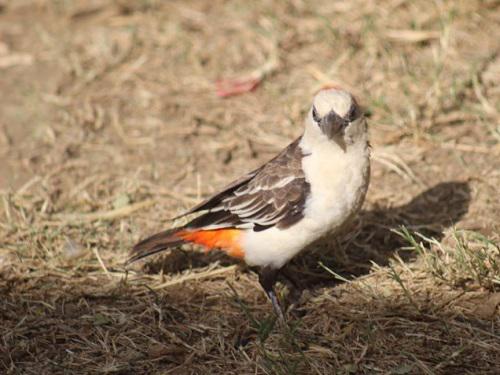Zephaniah Migeni Ajode
Other projects
20 Feb 2014
Community Environmental Conservation Project for Anyiko-Wetlands, Siaya County, Kenya I
29 Jul 2016
Intensified Community Environmental Conservation Project for Anyiko-Wetlands, Siaya County, Kenya
The project aims at enhancing restoration and conservation of the wetland through capacity development, Village Agroforestry establishment, Ecosan units’ installation, proper waste management and papyrus harvest zones creation.

Closed path in the zoned upper section of the wetland.
Anyiko-wetlands, is a permanent riverine wetland measuring 3000ha, sitting in North East Ugenya, Siaya County, Kenya. It’s one of several smaller wetlands draining into Nzoia River and is longish shaped with an average length of 10Km by 700m width at the widest point. From the comprehensive wetland monitoring conducted in pilot phase (Rufford Small Grants), it’s inhabited by over 67 wetland endemic birds some of which are listed on the IUCN Red List of Threatened species like Papyrus Gonolek (Laniarius mufumbiri), Sitatunga (Tragelaphus spekei) and the African endemic wetland plant Papyrus (Cyperus Papyrus) that immensely contributes to both uniqueness and importance of the wetland as it features one-of-a-kind living habitats for wildlife. The wetlands serve numerous ecological functions. However, it still faces anthropogenic caused damage as, overgrazing, farming encroachment, pollution, unsustainable papyrus harvesting in upper sections and surrounding plants are also being cut and left behind as “bycatch” destroying an interdependent healthy ecosystem. This project is aimed at equipping the local communities with skills and knowledge on sustainable wetland management practices through installation of Ecosan units for human waste disposal and organic manure production, establishment of 3 Village Agroforestry Centres equipped with over 60,000 indigenous seedlings for wetlands rehabilitation, installation of proper waste management structures in the identified schools adjacent to the wetland and 3 Site Support Groups responsible for the local community wetland management activities.

Golden backed weaver spotted in along the Anyiko wetland during birdwalk.
This project is aimed at enhancing the ecological functioning of the wetland which had been compromised for decades and our pilot Rufford Small Grants project created the entry point to the sustainable restoration and conservation of the wetland by working with the local communities in the mapping, wildlife species identification, community practices establishment like poor farming methods in the wetland, frequent burning of papyrus, waste disposal and this had led to prioritization of community livelihood improvement needs and wetlands conservation practices. By the end of the project, the Anyiko wetland communities shall have been empowered with various sustainable wetland management practices skills, proper waste management structures established, human waste disposal rate in the wetland through the introduction of Ecosan units, value addition to papyrus products, harvest zones created alongside proper waste management structures installed in identified schools. In the long run, this will enhance sustainable wetland restoration and conservation thereby improved ecological functioning of the ecosystem.